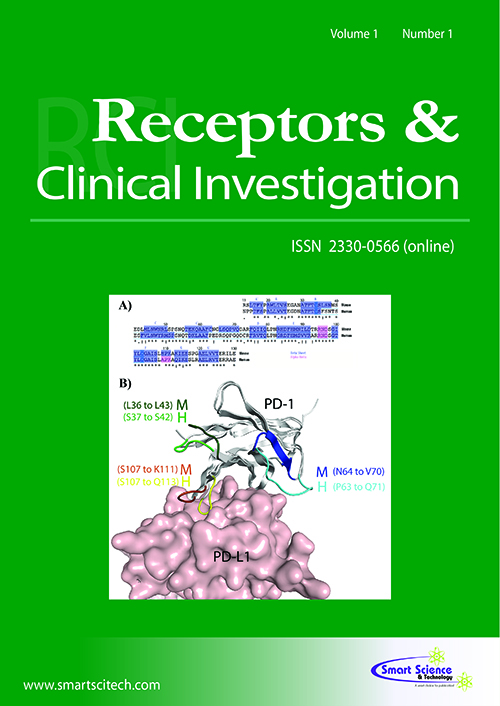The role of estrogen receptors in intestinal homeostasis and disease
Abstract
Estrogen has a pivotal role in many biological functions in both reproductive and non-reproductive organs, mediating actions through its receptors, estrogen receptor ? (ER?) and ER?. The expression of ERs is widespread in the body and is implicated in normal physiological processes as well as in disease conditions, including intestinal diseases. Immunohistochemical and functional analyses have revealed that ER? is the predominant ER type in intestinal tract, but not ER?. The ER? mediates to provide protection against duodenal ulcer, inflammatory bowel disease and colon cancer but may also contribute to the progression of constipation. In this review, we summarize the recent findings regarding estrogen and its receptors and their role in intestinal diseases. Based on these findings, it is possible to drive the pathogenesis of intestinal diseases using ER-subtype selective inhibitors or stimulators.











